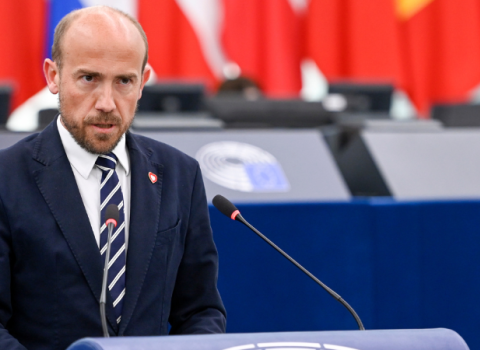The European Commission wants to give universities, research institutes and research-performing companies improved legal certainty to scour text and data produced in scientific journals, according to leaked proposals.
The preferred option is to grant researchers a mandatory text and data mining right. This would mean a free rein to use computer programmes to data mine research papers, a practice which to date has been tightly controlled by journal publishers in Europe.
The exception would benefit “public interest research organisations” engaging in both commercial and non-commercial scientific research.
The mining proposal as described in the draft is broader than UK rules on text and data mining, which only permits the practice for non-commercial activities. The UK is the only country in Europe with mining rules set out in law.
“Public-private partnerships are expressly covered by EU exemptions,” says Marco Caspers, a researcher in the faculty of law at University of Amsterdam. “Research carried out by those organisations could be commercialised, but one should keep in mind that none of the works that are mined may be disseminated to the public.”
Critics of the proposal have pointed out that start-ups, citizen scientists, freelance researchers, data journalists and advocacy groups would not receive any new rights to mine material however.
“Text and data mining creates value out of information,” says Carlo Piana, founder and partner at Array Law in Italy, which specialises in IT law. “Limiting the number of people reduces the chances to have such value creation. And why? Just because other people would make money?”
“Making profit is precisely one of the reason why people make free software, and that's good. If somebody gets rich in the process, that's far from being a problem,” he added.
A fear, shared by some inside the Commission, is that a narrow legal exception for commercial mining could see data analytics companies, such as Tree metrics, DataSift and PeerIndex, up sticks and go somewhere where the practice is unhindered.
Timothy Vollmer, manager of public affairs with Creative Commons, an American non-profit devoted to expanding the range of freely available creative works, would like to see looser restrictions – so data journalists and advocacy groups could mine free from legal uncertainty too – but he remains optimistic about the new rules.
“Obviously it could have been better but at least it just won’t be a voluntary scheme. It’s going to have teeth,” he said.
A final version of the proposal, which is part of a sweeping overhaul of copyright law in Europe, is due to be announced by the Commission on September 15, before going to the European Parliament and EU governments for approval.
Legal uncertainty
Researchers put forward legal uncertainty, caused by restrictive copyright rules, as one of the reasons for the slow development of mining in Europe.
Subscriptions to scientific publications may currently include or not the authorisation to perform mine, prohibit it altogether, or leave it unclear.
Even if the largest publishers such as Elsevier and Springer have gradually started to include mining for non-commercial purposes in their subscription licenses for academic institutions, different conditions may apply.
From their side, publishers, which have lobbied strongly to stop the EU from legislating on mining, report a relatively limited number of mining requests from universities and other public interest research organisations.
Research organisations may face additional costs to clarify their text and data mining rights and possibly renegotiate the subscription to make sure they can do it. In some cases, researchers may need to take up licences for computer crawling if their subscription does not cover it.
According to a Commission impact assessment also leaked last week, the costs of navigating the system are astronomical for research institutes.
University College London informed the Commission that checking the compliance of their mining activities with the different applicable mining licences could cost to up to £500,000 per year.
Data mining rights are clearer in other parts of the world. For example in the US, Israel, Korea, Singapore and Taiwan, a fair-use defence allows researchers to make computer analyses unhindered.





 A unique international forum for public research organisations and companies to connect their external engagement with strategic interests around their R&D system.
A unique international forum for public research organisations and companies to connect their external engagement with strategic interests around their R&D system.